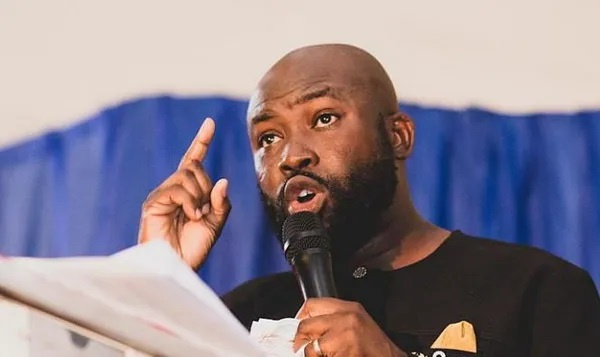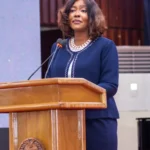ACCRA, Ghana – Senyo Hosi, a prominent member of the Coalition Against Galamsey, has issued a passionate plea for Ghanaians to confront the illegal mining crisis with moral urgency, warning that the relentless pursuit of quick profits is jeopardizing the nation’s future. Speaking out on the devastating effects of galamsey, Hosi criticized the apparent indifference to its long-term toll on Ghana’s environment, water resources, and the well-being of future generations.
“We’re acting as if we don’t have a conscience,” Hosi said in a recent statement, urging a collective awakening to the crisis. His remarks come as Ghana grapples with the escalating environmental destruction caused by illegal small-scale mining, known locally as galamsey, which has polluted rivers, decimated forests, and threatened livelihoods across the country.
The Galamsey Crisis in Context
Galamsey has been a persistent challenge in Ghana, a nation rich in gold and other minerals. While small-scale mining is a legal industry under strict regulations, illegal operations have surged, driven by economic hardship and lax enforcement. These activities often involve the use of toxic chemicals like mercury, which contaminate water bodies such as the Pra and Ankobra rivers, critical sources of drinking water for millions. Deforestation and land degradation have also left once-fertile areas barren, impacting agriculture and local communities.
The issue has taken center stage under President John Dramani Mahama’s administration, which has vowed to crack down on galamsey. Recent efforts include deploying security forces and establishing the National Anti-Illegal Mining Operations Secretariat (NAIMOS). On September 15, 2025, the Ghana Gold Board (GoldBod) donated five Toyota Hilux pickups and GHS5 million to NAIMOS, signaling intensified government action. Yet, despite these measures, galamsey persists, fueled by local complicity and the allure of quick wealth.
Hosi’s Call to Action
Hosi, a well-known entrepreneur and advocate for sustainable development, emphasized that the fight against galamsey must go beyond enforcement to address societal attitudes. “We need to think about ourselves and the unborn generation, not just focus on galamsey for money,” he said. His words highlight the tension between immediate economic gains and the long-term costs of environmental ruin, which could burden future generations with polluted water, degraded land, and diminished resources.
As a member of the Coalition Against Galamsey, a civil society group pushing for stronger policies and public awareness, Hosi has urged Ghanaians to take a unified stand. He called for communities, traditional leaders, and citizens to reject the temptation of short-term profits and prioritize sustainable practices. “This is about our collective survival,” he stressed, pointing to the need for a cultural shift toward responsibility and stewardship.
A Growing National Debate
Hosi’s comments have struck a chord amid growing public frustration with galamsey’s impact. Environmentalists and activists have long warned that Ghana risks losing its ecological heritage if the crisis is not addressed decisively. The contamination of water bodies has already forced some communities to rely on expensive water deliveries, while health risks from mercury exposure are rising.
The government’s response, while aggressive, has faced criticism for inconsistent enforcement and allegations of political interference in mining areas. Hosi’s appeal adds pressure on both authorities and citizens to align efforts. He advocated for stricter oversight of mining licenses, community-led monitoring, and investment in alternative livelihoods to wean communities off illegal mining.
Looking Ahead
The fight against galamsey is at a critical juncture. With initiatives like GoldBod’s reclamation of 1,000 hectares of degraded forest reserves set to begin in November 2025, there are signs of progress. However, Hosi’s message underscores that systemic change requires public buy-in. His call for a conscience-driven approach challenges Ghanaians to rethink their role in enabling or combating galamsey.
As the nation debates how to balance economic needs with environmental preservation, Hosi’s words serve as a rallying cry. The Coalition Against Galamsey plans to ramp up advocacy, including public campaigns and partnerships with local leaders, to keep the issue in the spotlight. For now, Hosi’s plea is a stark reminder that Ghana’s future hinges on the choices made today.




